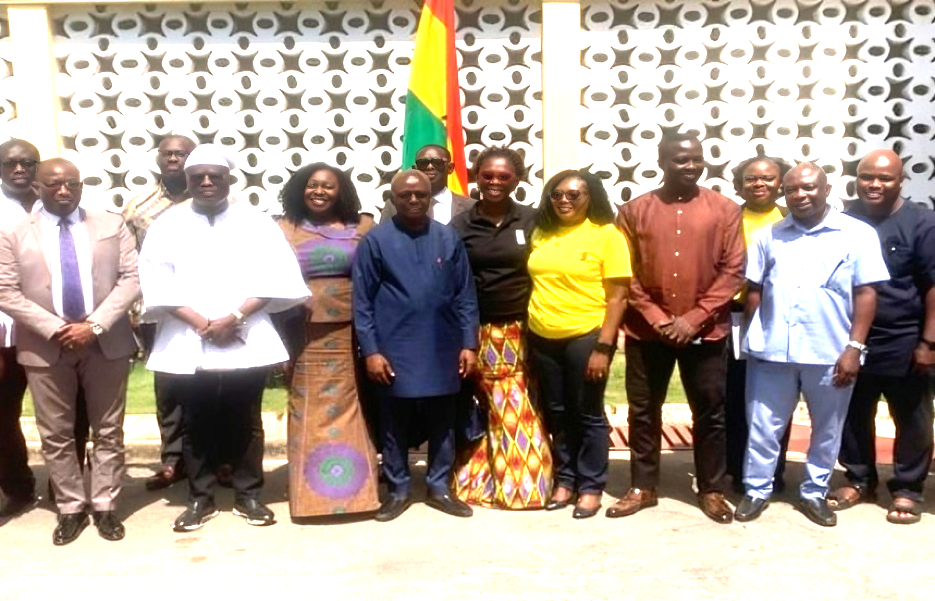By Philip Antoh
The Minister of Local Government, Chieftaincy and Religious Affairs, Mr. Ahmed Ibrahim, has revealed that the World Bank estimates Ghana loses $500 million each year due to inadequate sanitation.
He stated that this situation necessitates investment in sanitation to change the current trend.
Mr. Ibrahim mentioned that the World Bank’s 2012 estimate indicated Ghana was losing $290 million annually, but this amount has now doubled because of healthcare expenses, productivity losses, pollution cleanup costs, and lost tourism potential.
While speaking at the national observance of the 2025 World Toilet Day event in the Ministry’s conference room, the Minister expressed his concern that only 25% of households have access to basic sanitation facilities, as reported by the 2023 Ghana Statistical Service.
He also pointed out that 18% of Ghanaians still engage in open defecation, with the Upper East, North-East, and Savannah Regions having the highest rates.
He emphasized the urgent need for Ghana to enhance its sanitation initiatives and ensure that every household has and uses a safe toilet.
Addressing development partners, government agencies, civil society groups, and the media, the Minister cautioned that Ghana’s progress in sanitation is too slow for a lower-middle-income country and called on citizens, institutions, and local authorities to act.
This year’s theme, “Accelerating Change, Toilet for All, Everyone’s Responsibility,” highlights the urgent need for shared responsibility in sanitation in Ghana.
“Sanitation enhances human dignity, public health, and economic development. Most importantly, it is the duty of every citizen,” he emphasized.
He cautioned that Ghana is falling behind many West African nations that have achieved quicker sanitation advancements despite having fewer resources.
The Minister pointed out that the slow progress is due to households being hesitant to invest in toilets, insufficient funding for sanitation, weak enforcement of regulations, rapid urban growth, and disjointed collaboration among stakeholders.
He noted that the increasing belief that toilets are not essential is a significant obstacle. “For many families, constructing a toilet competes with paying for school fees, business investments, or home improvements. We need to shift this perspective,” he stated.
Mr. Ibrahim pointed out that over 85% of Ghana’s WASH funding is allocated to water, leaving sanitation underfunded. He also mentioned that more than 75% of urban households depend on on-site facilities, while desludging services and treatment plants struggle to keep up with the fast urban expansion in Ghana.
He stressed that the country already knows the solutions—Community-Led Total Sanitation, revolving toilet financing for households, private sector participation, and initiatives for behavior change—but must now accelerate implementation with urgency and dedication.
“We must ensure that no one is excluded—our northern regions, low-income urban areas, island communities, and peri-urban neighbourhoods must all receive support to have toilets,” he added.
The Minister urged households, traditional leaders, faith-based organizations, the private sector, the media, MMDAs, schools, and development partners to fulfil their responsibilities.
“Every year, diarrhoeal diseases kill more than 5,000 children under five. This should be zero in a country like ours,” he said, calling for urgent transformation in sanitation planning, financing and enforcement.
Again, Mr. Ibrahim accreted that improper disposal of faecal sludge is contaminating water bodiesadding that the 2023 Water Resources Commission assessment reported faecal coliform contamination in over 60% of surface water samples in water basins in urban areas, mainly due to poor sanitation.
Ahmed Ibrahim assured that government will provide strong political support to drive the “Toilet for All” agenda, urging citizens to adopt a renewed sense of urgency to improve hygiene and end open defecation.
“With collective effort, Ghana can achieve universal access to safe sanitation. Let us ensure that by the next World Toilet Day, every Ghanaian household is on a clear path to owning a decent toilet,” he concluded.


